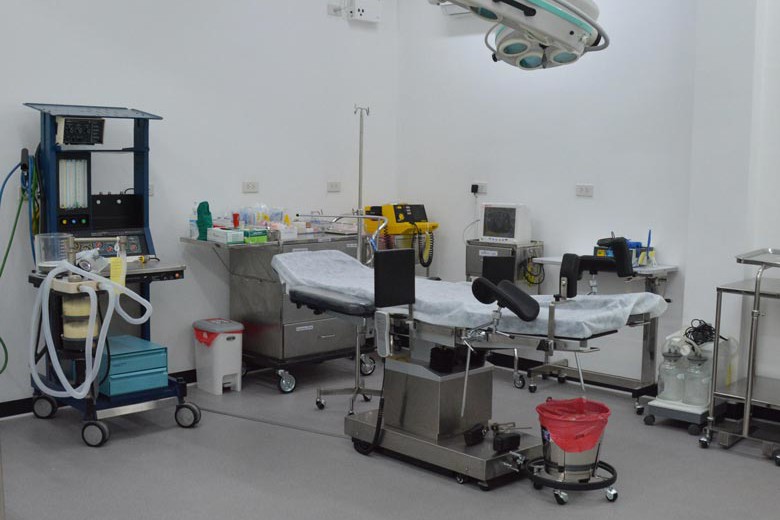Operating Rooms
First Western Hospital has the capacity to treat patients quickly and with optimal care. Having the three sterile operating rooms carries the benefit of cutting down waiting times for planned treatments, urgent cases and emergencies.
What to expect on the day of surgery.
You will be asked to arrive at the hospital a few hours before the procedure is due to start in order to allow time for preparations such as checking through your information, meeting your anaesthesiologist and changing into a hospital gown.
Your nurse may need you to read and sign some paperwork. Next, your blood pressure, temperature and pulse will be taken along with a medical assessment. Please do feel free to ask your nurse any questions. An IV (intravenous) line will be placed in a vein in arm or hand; this is there to administer medication and fluids during the procedure.
Will I meet my anaesthesiologist before surgery?
Before the surgery you will be visited by your anaesthesia administrator and other team members. Your anaesthesia provider will decide on the best type of anaesthetic for you based on the type of procedure, personal preferences and your medical history.
Will I meet my surgeon?
Yes, the surgeon or member of your surgical team will usually come to see you prior to surgery in order to answer any further questions you may have and may place a mark with a surgical pen on the part of your body to be operated on.
What is my operating room like?
The operating rooms are busy areas with bright lighting. All team members will be dressed the same way as masks and sterile clothing is worn by everyone for your protection. The room is exceptionally clean as it is important to keep the room sterile. The rooms are kept very cool, warm blankets will be provided for you after you have been moved onto the operating table. Your dedicated team will be in the room to keep you comfortable and safe throughout the procedure.
How long will the surgery take?
The length of time in the operating room depends on the type of surgery you are having. The surgeon can give you an estimation of the time required beforehand.
What happens after surgery?
After surgery, you will be taken to the recovery room or directly to the Intensive Care Unit (ICU) where nurses will keep you as comfortable as possible and monitor you closely. Your temperature, pulse, blood pressure and bandages will be checked and taken care of by the nursing team. Please tell your nurse if you are experiencing pain so that they can help manage this.


